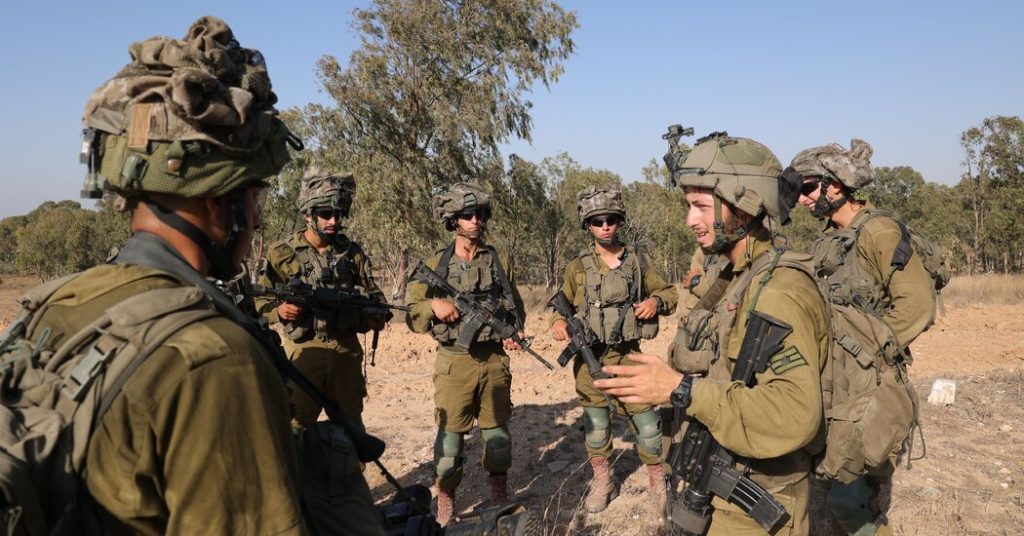Tensions in the region escalated on Tuesday after an Israeli strike killed Taleb Abdallah, a senior commander of Hezbollah, prompting the group to retaliate by firing over 200 rockets at Israel the following day. Despite the attacks, minimal damage was reported by the Israeli military. On Thursday, Israeli fighter jets targeted Hezbollah military structures in Lebanese border villages, further exacerbating the situation. Israeli officials have threatened stronger action against Hezbollah, as pressure from the political right and displaced civilians mounts. However, both sides have thus far avoided full-blown war, with mediation efforts from the United States, France, and other countries seeking a diplomatic solution to restore calm to the region.
While efforts are being made to broker a peace agreement between Israel and Hezbollah, the ongoing campaign in Gaza presents a significant obstacle. An agreement seems unlikely as long as fighting continues in Gaza, complicating the already tense situation. On Thursday, residents of southern Gaza reported heavy bombardment by the Israeli military, with strikes hitting the southwest edge of Al-Mawasi, a designated humanitarian zone. Gazans seeking refuge in Al-Mawasi have expressed concerns about the attacks, as they have nowhere else to go if the area is targeted. The Palestinian Authority’s news agency reported intensified missile and artillery strikes on Al-Mawasi, where many displaced Gazans had sought shelter after fleeing nearby Rafah.
The Israeli military, however, denied targeting the humanitarian zone of Al-Mawasi and stated that operations were continuing in Rafah, where they were engaged in face-to-face encounters with Hamas militants. The fighting in Rafah has been ongoing since early May when Israeli soldiers advanced into the city in an effort to defeat Hamas’s remaining battalions and dismantle the group’s infrastructure. The situation remains dire for civilians caught in the crossfire, with reports of continued violence and destruction in Gaza. The Israeli military’s actions have raised concerns about the safety and well-being of Palestinian civilians, particularly those seeking refuge in designated humanitarian areas.
As the conflict continues to escalate, the international community has expressed concerns about the potential for a regional war. Mediation efforts have been ongoing, with calls for a diplomatic resolution to the crisis. The United States, France, and other countries have been working to advance a peace agreement between Israel and Hezbollah to prevent further violence and restore calm to the region. However, the likelihood of reaching a successful agreement remains low, given the ongoing hostilities in Gaza and the mounting tensions between Israel and Hezbollah. The situation remains volatile, with the threat of full-blown war looming large, as both sides continue to engage in military actions that threaten the safety and security of civilians in the region.
The situation in the region remains precarious as tensions between Israel and Hezbollah continue to escalate. The recent killing of a senior Hezbollah commander by an Israeli strike has led to retaliatory attacks by the group, resulting in further violence and destruction. The Israeli military’s actions in Gaza have raised concerns about the safety of civilians, particularly those seeking refuge in designated humanitarian areas. Efforts to mediate a diplomatic solution to the crisis have so far been unsuccessful, with the likelihood of reaching an agreement low as long as fighting persists in Gaza. The threat of a regional war looms large, as both sides continue to engage in military actions that threaten the stability of the region and the safety of civilians caught in the crossfire.


